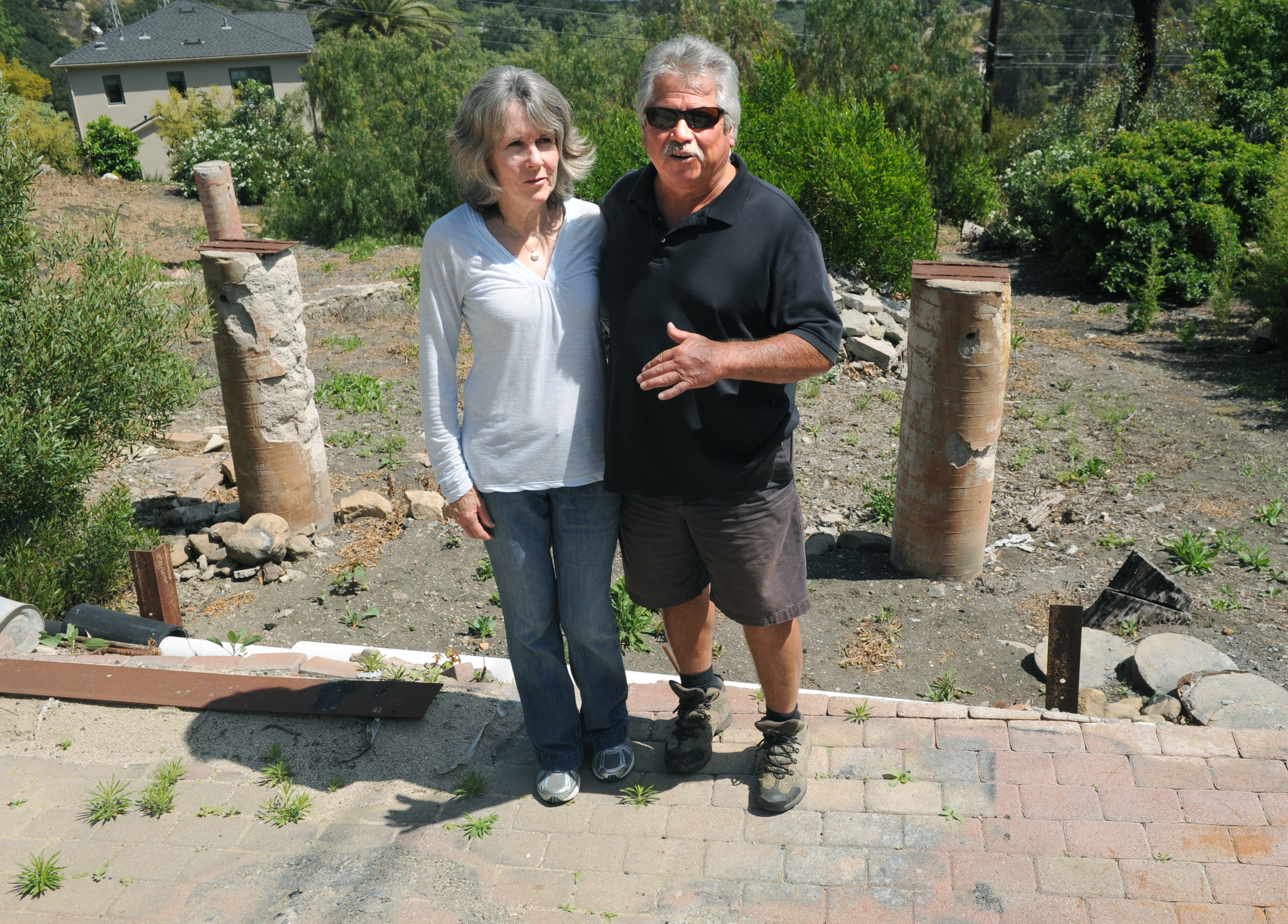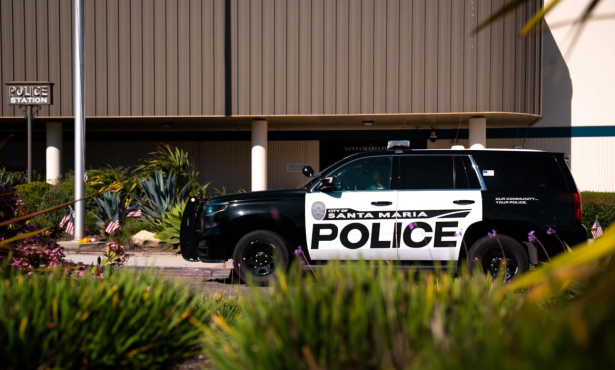Court Says Homeowners Can Rebuild
Families Who Lost Homes in Tea Fire Prevailed in Battle with City

A 2012 Santa Barbara Superior Court ruling was upheld last week by the state Court of Appeals, requiring that the City of Santa Barbara issue rebuilding permits to three Sycamore Canyon homeowners who lost their homes in the Tea Fire. In that 2012 decision, Judge Thomas Anderle stated that a 1997 city ordinance banning new construction in the area — known as “Slide Mass C” — constituted an “unlawful regulatory taking” of the properties after the residents’ homes were burned down.
The Tea Fire ravaged the Santa Barbara and Montecito foothills in November 2008, destroying more than 200 homes and heavily damaging the surrounding area. Among the properties destroyed were the single-family residence homes of Luke Brost, Ruben and Pamela Barajas, and Lavell and Louise Canley, each located entirely within the Sycamore Canyon portion of the Conejo landslide area known as Slide Mass C.
The Sycamore Canyon area has had a history of unstable movement, prompting the city in 1997 to adopt an ordinance prohibiting new construction on properties entirely within the landslide area, based upon geological reports contending that “damage to structures and property within the boundary of Slide Mass C is highly probable.”
Because of the ordinance, Brost, the Barajases, and the Canleys were barred from receiving permits allowing them to rebuild their homes and prevented from collecting financial compensation from the city for their loss of property after the 2008 fire.
According to Joseph Liebman, the homeowners’ lawyer during the lower-court proceedings, his clients initially hired him with the intention of securing permits to rebuild their homes. “It was only after the city had repeatedly refused to issue the permits did my clients and I proceed with the lawsuit,” he said. He continued to say that he believed that issuing permits right after the fire would have been “the right and proper thing” for the city to do, and would have saved them the costs of attorney’s fees and damages. Echoing this sentiment was the families’ appellate attorney, Herb Fox, who referred to the entire case as a “colossal waste of taxpayers’ money.”
During the trial court proceedings, Judge Anderle informed now-former City Attorney Stephen Wiley that the city could either leave its ordinance in effect and purchase the three properties for full market value, or amend the ordinance to permit reconstruction and only compensate the homeowners for a three-year taking, the amount of time they were unable to reside in their homes.
Opting for the latter, the city agreed to amend the ordinance in 2012 and pay each of the families approximately $42,000. In addition, the city was ordered to pay upward of $400,000 in attorney’s fees. The City then appealed the case in early 2013, seeking to reverse the trial court’s judgment and order awarding attorney’s fees and costs to the homeowners.
Referring to numerous case law in its agreement with the earlier judgment, the Appellate Court noted that “At best, the evidence established that uncertainty exists regarding the future stability of the geology” of the region, but this “speculative harm” remains insufficient for the city to exclude the families “from all economically beneficial uses of their properties.” The Appellate Court again ordered the city to reimburse the homeowners for attorneys’ fees and costs incurred during the appeals process, a number estimated to hover around $200,000 — more than three times the amount of property damages.
According to Liebman, the Canleys and Brost have since sold their properties in an effort to “move on with their lives.” The Barajases remain unsure of whether or not to relocate to their former property. When asked to comment on the Appellate Court’s decision, Ruben Barajas posed the question: “If [the city] used the time and money they spent on fighting us, why didn’t they go after the people that started the fire in the first place?”
City Attorney Ariel Calonne noted that his office is in the process of consulting with the City Council about whether or not to submit a petition to review the decision to the California Supreme Court.



